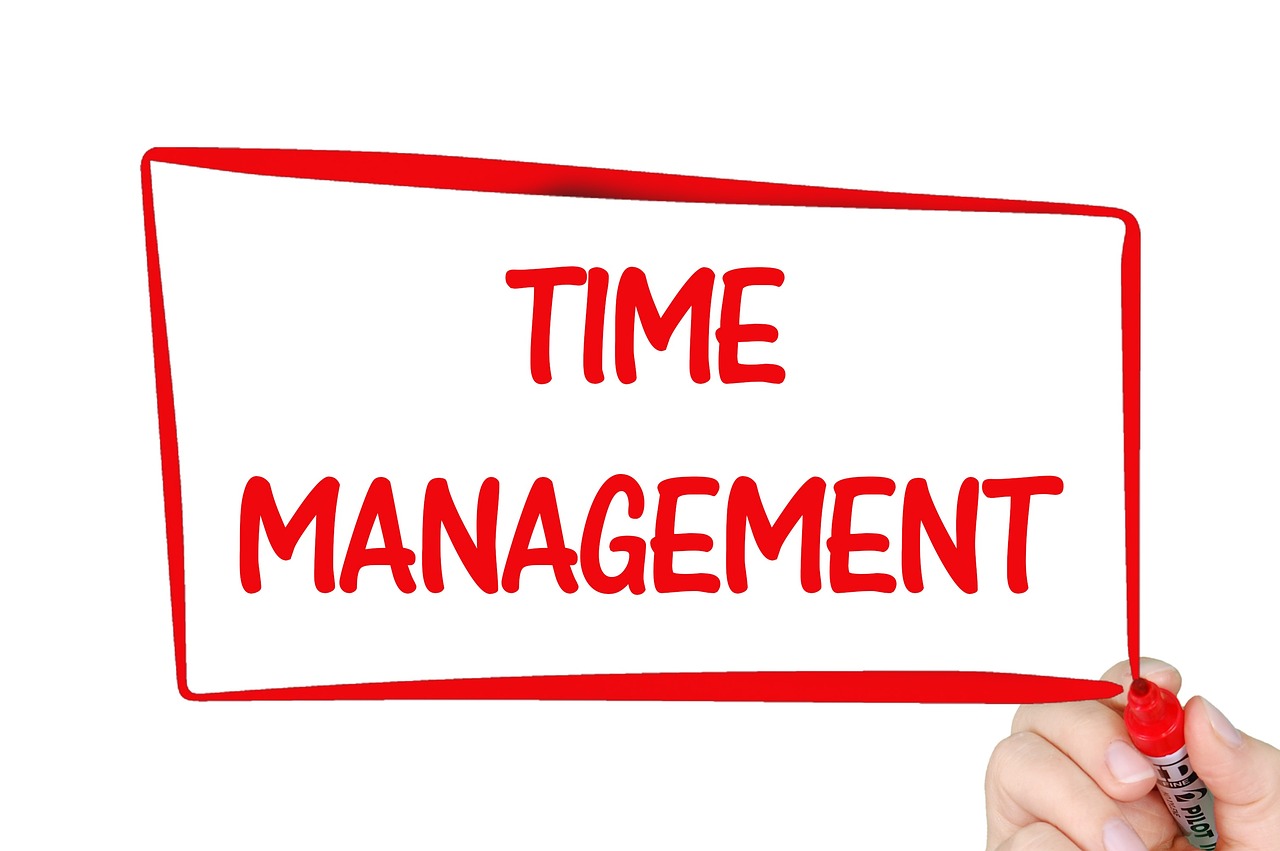OriginTrail - The Future of Supply Chain Transparency
In today's fast-paced world, where consumers demand more information about the products they purchase, OriginTrail emerges as a beacon of hope for achieving unparalleled supply chain transparency. Imagine walking into a store, picking up a product, and having the ability to trace its journey from raw material to retail shelf, all at your fingertips. This is not just a dream; it is the reality that OriginTrail aims to create. By leveraging cutting-edge technology, OriginTrail is revolutionizing the way businesses and consumers interact with supply chains, ensuring that every step is visible, verifiable, and trustworthy.
Supply chain transparency is more than just a buzzword; it’s a critical component of modern business practices. Today’s consumers are not only interested in the price and quality of products; they want to know the story behind them. They seek assurance that the products they buy are ethically sourced, environmentally friendly, and safe. In this context, OriginTrail provides a platform that enhances visibility and traceability across the supply chain, fostering a culture of trust and accountability. This is particularly vital in industries such as food, pharmaceuticals, and textiles, where the stakes are high, and the consequences of opacity can be dire.
But how does OriginTrail achieve this level of transparency? The answer lies in its innovative use of blockchain technology. By utilizing a decentralized ledger system, OriginTrail ensures that every transaction is recorded immutably and can be accessed by all stakeholders involved in the supply chain. This means that manufacturers, suppliers, retailers, and consumers can all verify the authenticity of products, leading to a more collaborative and efficient supply chain environment. The beauty of this system is that it eliminates the need for a central authority, reducing the potential for fraud and corruption.
As we delve deeper into the mechanics of OriginTrail, it becomes evident that its approach is not just about transparency; it’s about creating a community of trust. By allowing multiple stakeholders to access and verify supply chain data, OriginTrail fosters a collaborative atmosphere where information is shared openly. This decentralization is akin to a group of friends sharing their experiences and insights to help each other make informed decisions. In this way, businesses can work together more effectively, leading to improved efficiency and reduced operational costs.
However, transparency is not just about sharing information; it’s also about ensuring that this information is accurate and reliable. This is where smart contracts come into play. These self-executing contracts automate processes and enforce agreements between parties in the supply chain. For instance, if a supplier fails to deliver goods on time, the smart contract can automatically trigger penalties or alternative arrangements. This not only streamlines operations but also reduces disputes, paving the way for smoother business transactions.
Moreover, the ability to track products in real-time is a game-changer for supply chain management. Imagine being able to monitor the status of a shipment from the moment it leaves the warehouse until it arrives at your doorstep. This level of oversight allows businesses to respond quickly to any issues that may arise, whether it’s a delay in shipping or a quality concern. The impact on decision-making is profound, as stakeholders can make informed choices based on real-time data rather than relying on outdated information.
In conclusion, OriginTrail is not just enhancing supply chain transparency; it is redefining the relationship between businesses and consumers. By fostering transparency, accountability, and trust, OriginTrail empowers consumers to make informed choices about the products they purchase. As we move towards a future where consumers are more conscious of their purchasing decisions, the importance of supply chain transparency will only continue to grow, making OriginTrail a vital player in this evolving landscape.
- What is OriginTrail? OriginTrail is a decentralized platform that enhances supply chain transparency through blockchain technology.
- How does blockchain improve supply chain transparency? Blockchain provides an immutable ledger that allows all stakeholders to access and verify supply chain data, ensuring accuracy and trust.
- What are smart contracts? Smart contracts are self-executing contracts that automate processes and enforce agreements within the supply chain.
- Why is real-time tracking important? Real-time tracking allows stakeholders to monitor products throughout the supply chain, improving responsiveness and decision-making.
- What challenges exist in achieving supply chain transparency? Challenges include data privacy concerns and the integration of new solutions with existing systems.

Understanding Supply Chain Transparency
In today's fast-paced world, where consumers are more informed than ever, supply chain transparency has become a buzzword that resonates deeply with businesses and consumers alike. But what does it really mean? At its core, supply chain transparency refers to the ability to trace and track the journey of a product from its origin to the end consumer. Imagine buying a pair of jeans and being able to see every step they took—from the cotton fields in Uzbekistan to the factory in Vietnam, and finally to your local store. This level of visibility not only satisfies curiosity but also builds a robust foundation for trust.
The importance of supply chain transparency cannot be overstated. In an era where consumers are increasingly concerned about ethical sourcing, environmental impact, and product authenticity, a transparent supply chain acts as a beacon of trust. When businesses openly share information about their sourcing practices, production processes, and labor conditions, they foster a sense of accountability. This accountability is crucial for building long-lasting relationships with customers, who are more likely to choose brands that align with their values.
Moreover, supply chain transparency enables businesses to respond more effectively to consumer demands. For instance, if a company can quickly identify that a batch of products was sourced from a region facing environmental concerns, they can act swiftly to address the issue. This kind of responsiveness not only mitigates risks but also enhances brand reputation. In fact, studies show that companies with transparent supply chains often enjoy a competitive edge in their respective markets.
To illustrate the significance of this concept, consider the following key benefits of supply chain transparency:
- Enhanced Consumer Trust: When consumers can verify the origins of their products, they are more likely to trust the brand.
- Improved Risk Management: Transparency allows businesses to identify potential risks and address them proactively.
- Informed Decision-Making: With access to reliable data, businesses can make better strategic decisions.
However, achieving transparency is not without its challenges. Companies often grapple with issues related to data accuracy, sharing sensitive information, and integrating new technologies with existing systems. Yet, the rewards of overcoming these challenges far outweigh the hurdles. In a world where consumers demand authenticity, transparency in the supply chain is not just a trend; it’s becoming a necessity.
In conclusion, understanding supply chain transparency is essential for both businesses and consumers. It creates a landscape where trust thrives, enabling consumers to make informed choices while empowering businesses to operate more responsibly. As we delve deeper into the mechanics of how OriginTrail enhances this transparency, we’ll uncover the innovative technologies that are reshaping the future of supply chains.

The Role of Blockchain Technology
Blockchain technology is the backbone of OriginTrail's supply chain transparency initiatives. But what exactly is blockchain? At its core, it's a decentralized ledger that records transactions across many computers in such a way that the recorded transactions cannot be altered retroactively. This means that once data is entered into the blockchain, it is immutable and can be trusted. Imagine a digital notebook that everyone can see, but once something is written down, it can't be erased or changed. This feature is crucial in supply chains where trust and accountability are paramount.
One of the standout features of blockchain is its ability to enhance data integrity. In traditional supply chains, information can be manipulated or lost, leading to discrepancies and mistrust. However, with blockchain, every participant in the supply chain has access to the same information, which is updated in real-time. This transparency ensures that everyone—from manufacturers to consumers—can verify the authenticity and origin of products. It’s like having a virtual magnifying glass that allows anyone to inspect the details of a product’s journey from the farm to the table.
Security is another critical aspect that blockchain technology brings to the table. By using cryptographic techniques, blockchain protects data from unauthorized access and tampering. Each transaction is linked to previous transactions, forming a chain that is incredibly difficult to break. This level of security is vital for businesses that want to protect sensitive information while still promoting transparency. Think of it as a high-tech vault that keeps your data safe while allowing you to share it with trusted partners.
Furthermore, blockchain promotes decentralization, which is a game-changer for supply chain management. Instead of relying on a single entity to manage and verify data, multiple stakeholders can access and verify the information independently. This collaborative approach not only enhances trust among partners but also boosts efficiency. Imagine a team of chefs in a kitchen, each responsible for their own dish, but all working together to create a fantastic meal. That’s how decentralized data sharing works in supply chains.
Now, let’s talk about smart contracts. These are self-executing contracts with the terms of the agreement directly written into code. They automatically enforce and execute agreements when predetermined conditions are met. For example, if a shipment arrives on time, a smart contract could trigger payment to the supplier without any manual intervention. This automation significantly reduces the chances of disputes and delays, making operations smoother and faster. Picture a vending machine: you put in your money, select your item, and the machine delivers it without any fuss. Smart contracts work in a similar, efficient manner.
Real-time tracking is another incredible benefit that blockchain offers. With traditional supply chains, tracking a product can often feel like chasing a ghost. However, with blockchain, stakeholders can monitor products throughout their journey in real-time. This capability allows businesses to respond quickly to issues, such as delays or quality concerns. Think of it as having a GPS for your products—no more guessing where they are or when they’ll arrive. This level of transparency not only boosts operational efficiency but also enhances decision-making processes, allowing businesses to pivot quickly in response to changing circumstances.
In summary, the role of blockchain technology in enhancing supply chain transparency cannot be overstated. By providing a secure, decentralized, and transparent platform for data sharing, OriginTrail is paving the way for a future where businesses and consumers can trust the products they buy. As we continue to explore the implications of these innovations, it’s clear that blockchain is not just a buzzword; it’s a transformative force in the world of supply chains.
- What is blockchain technology? - Blockchain is a decentralized digital ledger that records transactions securely and immutably.
- How does blockchain enhance supply chain transparency? - It allows all stakeholders to access the same, unalterable information in real-time, promoting trust and accountability.
- What are smart contracts? - Smart contracts are self-executing contracts that automatically enforce terms when conditions are met.
- Can blockchain improve data security? - Yes, blockchain uses cryptographic techniques to protect data from unauthorized access and tampering.

Decentralization and Data Sharing
In today's fast-paced business environment, decentralization stands out as a game-changer for supply chain management. Imagine a world where every stakeholder, from manufacturers to consumers, can access real-time data about a product's journey. This is the essence of decentralization in supply chains, and it’s a key feature of OriginTrail's innovative approach. By eliminating the bottlenecks associated with traditional, centralized systems, OriginTrail allows for a more collaborative and efficient sharing of information.
When we talk about data sharing in a decentralized framework, we’re looking at a system where information is not locked away in silos. Instead, it flows freely among participants. This is crucial for several reasons:
- Enhanced Collaboration: With all parties having access to the same information, collaboration becomes seamless. Companies can work together on logistics, inventory management, and even marketing strategies, all based on real-time data.
- Increased Efficiency: By sharing data openly, businesses can identify bottlenecks and inefficiencies in the supply chain, leading to quicker resolutions and improved operational performance.
- Improved Decision-Making: Access to comprehensive data empowers stakeholders to make informed decisions quickly. This agility can be the difference between capitalizing on a market opportunity or missing it entirely.
Moreover, the decentralized nature of OriginTrail's platform ensures that data integrity is maintained. Each transaction is recorded on the blockchain, creating a tamper-proof history of product movements. This not only enhances trust among participants but also allows for easier audits and compliance checks. Think of it as a digital ledger that everyone can see, but no one can alter without consensus.
Imagine a scenario where a food product is traced back to its origin. With decentralized data sharing, every step of the supply chain—from farm to table—can be verified. Consumers can scan a QR code and instantly see where their food came from, how it was processed, and even its journey through various distribution channels. This level of transparency not only boosts consumer confidence but also holds every player in the supply chain accountable for their actions.
In summary, decentralization and data sharing in supply chains represent a significant shift towards a more transparent and trustworthy ecosystem. By leveraging blockchain technology, OriginTrail is paving the way for a future where collaboration reigns supreme, and every stakeholder can contribute to a more efficient and accountable supply chain.
- What is supply chain transparency?
Supply chain transparency refers to the visibility and traceability of products as they move from the point of origin to the end consumer, enabling stakeholders to verify the integrity of the supply chain. - How does blockchain enhance supply chain transparency?
Blockchain provides a secure and immutable record of transactions, ensuring data integrity and allowing all participants to access the same information in real-time. - What are the benefits of decentralization in supply chains?
Decentralization enhances collaboration, increases efficiency, and improves decision-making by allowing all stakeholders to access and share data freely. - How can consumers benefit from supply chain transparency?
Consumers gain confidence in their purchases, as they can trace products back to their origins and understand the processes involved in their production.

Smart Contracts in Supply Chains
Smart contracts are revolutionizing the way businesses operate within supply chains by automating processes and enforcing agreements without requiring intermediaries. Imagine a world where contracts execute themselves automatically based on pre-defined conditions—this is the essence of smart contracts. They are coded agreements that reside on the blockchain, ensuring that all parties involved in the supply chain adhere to the terms set forth. This not only reduces the likelihood of disputes but also enhances operational efficiency.
One of the most significant advantages of smart contracts is their ability to streamline operations. For instance, when a product is shipped, a smart contract can automatically trigger payment to the supplier once the delivery is confirmed. This instantaneous execution of contractual obligations minimizes delays and fosters trust among stakeholders. In a traditional supply chain, delays in payment and disputes over contract terms can lead to friction between suppliers and retailers. However, with smart contracts, both parties can have peace of mind knowing that the terms of their agreement will be honored without unnecessary delays.
Moreover, smart contracts can facilitate greater transparency in supply chains. Each transaction is recorded on the blockchain, creating an immutable ledger that all authorized parties can access. This transparency not only helps in tracking the flow of goods but also ensures that all stakeholders are held accountable. Companies can verify compliance with regulations, track product origins, and monitor quality standards—all in real-time. This level of oversight is particularly crucial in industries where safety and compliance are paramount, such as food and pharmaceuticals.
However, the implementation of smart contracts is not without its challenges. Businesses must ensure that the coding of these contracts is accurate and comprehensive. A poorly written smart contract can lead to unintended consequences, such as incorrect payments or failure to execute critical terms. Therefore, it is essential for companies to work closely with blockchain developers and legal experts to craft contracts that are both effective and legally binding.
In conclusion, smart contracts are a game-changer for supply chains, offering a myriad of benefits ranging from automation and efficiency to enhanced transparency and accountability. As businesses continue to adopt this innovative technology, we can expect to see a significant shift in how supply chains operate, ultimately leading to a more trustworthy and efficient marketplace.
- What are smart contracts? Smart contracts are self-executing contracts with the terms of the agreement directly written into code, allowing for automatic execution when conditions are met.
- How do smart contracts improve supply chain efficiency? They automate processes, reduce the need for intermediaries, and ensure that agreements are executed promptly, minimizing delays.
- Are smart contracts secure? Yes, smart contracts are stored on a blockchain, making them tamper-proof and secure against fraud.
- What industries can benefit from smart contracts? Industries such as logistics, food safety, pharmaceuticals, and any sector that relies on transparent and efficient supply chains can benefit significantly.

Real-Time Tracking and Monitoring
In today's fast-paced world, have become essential components of a transparent supply chain. Imagine being able to see where your products are at any given moment, just like tracking your favorite delivery on an app. This capability not only enhances operational efficiency but also empowers stakeholders to make informed decisions swiftly. With OriginTrail's innovative approach, businesses can monitor their supply chain in real-time, ensuring that every step of the process is visible and accountable.
One of the most significant advantages of real-time tracking is the ability to respond promptly to any disruptions. For example, if a shipment is delayed or a product is compromised, stakeholders can be alerted immediately, allowing them to take corrective actions without unnecessary delays. This level of responsiveness is akin to having a safety net that catches problems before they escalate, ultimately saving time and resources.
Moreover, real-time tracking contributes to enhanced customer satisfaction. Consumers today are more informed and expect transparency regarding the products they purchase. When businesses can provide accurate, real-time information about product status and location, they build trust and loyalty. Customers appreciate knowing that they can track their orders and receive updates, which can lead to repeat business and positive word-of-mouth.
To illustrate the impact of real-time tracking, consider the following table that outlines its benefits:
| Benefit | Description |
|---|---|
| Increased Efficiency | Real-time data allows for quicker decision-making and reduces delays in the supply chain. |
| Enhanced Customer Experience | Customers can track their orders, leading to higher satisfaction and trust. |
| Proactive Issue Resolution | Immediate alerts about disruptions allow for timely interventions. |
| Data-Driven Decisions | Access to real-time data enables better forecasting and planning. |
Furthermore, the integration of Internet of Things (IoT) devices plays a crucial role in enabling real-time tracking. These devices can collect data from various points in the supply chain, such as temperature, humidity, and location. This information is then transmitted securely over the blockchain, ensuring that all stakeholders have access to the same reliable data. It's like having a digital pulse on your supply chain, providing insights that were previously unattainable.
In conclusion, real-time tracking and monitoring are not just trends; they are fundamental to achieving a transparent supply chain. By leveraging technology to provide visibility and accountability, businesses can not only improve their operations but also foster deeper relationships with their customers. As we move forward, embracing real-time tracking will be key to staying competitive in an increasingly transparent marketplace.
- What is real-time tracking in supply chains? Real-time tracking refers to the ability to monitor the location and status of products throughout the supply chain as they move from origin to consumer.
- How does real-time tracking benefit consumers? It allows consumers to receive updates about their orders, enhancing transparency and trust in the brand.
- What technology is used for real-time tracking? Technologies such as IoT devices and blockchain are commonly used to collect and secure data for real-time tracking.
- Can real-time tracking help in crisis management? Yes, it enables businesses to respond quickly to disruptions, minimizing potential losses.

Enhancing Consumer Trust
In today's fast-paced market, where consumers are increasingly aware and concerned about the origins of their products, trust has become a crucial currency. With the rise of ethical consumerism, shoppers want to know not just what they are buying, but also where it comes from and how it was made. This is where OriginTrail steps in, revolutionizing the way we perceive supply chains. By leveraging cutting-edge technology, OriginTrail enhances transparency, allowing consumers to trace the journey of their products from the source to the shelf.
Imagine walking into a store and picking up a product, only to find that you can scan a QR code and instantly access a wealth of information about its journey. You could see the farm where the ingredients were grown, the factory where it was processed, and even the transportation methods used. This level of transparency builds a bridge of trust between businesses and consumers, ensuring that shoppers feel confident in their purchases. According to recent studies, brands that provide transparency are more likely to gain consumer loyalty, as 86% of consumers say they are willing to pay more for a better customer experience.
OriginTrail's innovative approach empowers consumers by providing them with the tools they need to make informed choices. With the ability to verify the authenticity of products, consumers can avoid misleading claims and make decisions that align with their values. This is particularly important in industries like food and fashion, where ethical sourcing is becoming a key factor in purchasing decisions. By fostering a culture of accountability, OriginTrail encourages brands to uphold high standards, knowing that consumers are watching.
Moreover, the platform not only benefits consumers but also businesses. Companies that embrace transparency can differentiate themselves in a crowded market. By showcasing their commitment to ethical practices and sustainability, they can attract a loyal customer base. In addition, transparent practices can lead to improved operational efficiencies, reducing waste and enhancing overall productivity.
However, it’s essential to recognize that achieving this level of transparency is a two-way street. While businesses must provide accessible information, consumers also need to engage actively with the data presented to them. This engagement fosters a community of informed consumers who are not afraid to ask questions and demand accountability from brands. As this culture grows, so does the expectation for transparency in all aspects of business, creating a ripple effect that can lead to widespread industry change.
In conclusion, enhancing consumer trust through transparency is not just a trend; it’s a necessity in today’s marketplace. OriginTrail is at the forefront of this movement, enabling consumers to make choices that reflect their values while holding businesses accountable. As we move forward, the future of supply chains will be defined by this newfound trust, paving the way for a more sustainable and ethical economy.
- What is supply chain transparency?
Supply chain transparency refers to the ability to track the journey of products from their origin to the consumer, ensuring that all processes are visible and verifiable. - How does OriginTrail enhance supply chain transparency?
OriginTrail utilizes blockchain technology to provide real-time data and traceability, allowing consumers to access detailed information about their products. - Why is consumer trust important?
Consumer trust is vital for brand loyalty and can significantly influence purchasing decisions, especially in an era where ethical sourcing is increasingly valued. - What challenges exist in achieving supply chain transparency?
Challenges include data privacy concerns, integration with existing systems, and the need for collaboration among multiple stakeholders.

Challenges in Achieving Transparency
Achieving transparency in the supply chain is akin to navigating a maze filled with twists and turns. While the benefits are clear, the path to full transparency is often obstructed by various challenges that businesses must overcome. One of the most significant hurdles is the complexity of data management. As supply chains grow more intricate, managing and sharing data across multiple stakeholders becomes a daunting task. Each entity in the supply chain—from manufacturers to retailers—may use different systems, leading to inconsistencies and gaps in information. This fragmentation makes it difficult to establish a unified view of the supply chain.
Another challenge is the cultural resistance to change. Many organizations have operated under traditional models for years, and shifting to a transparent system requires a significant mindset change. Employees may be hesitant to adopt new technologies or processes, fearing that it could disrupt their workflow. Overcoming this resistance involves not only training and education but also demonstrating the tangible benefits of transparency, such as improved efficiency and enhanced customer satisfaction.
Furthermore, data privacy concerns present a critical barrier. Companies must balance the need for transparency with the necessity of protecting sensitive information. Consumers increasingly demand to know where their products come from, but businesses also need to safeguard proprietary data and personal information. This creates a paradox: how can companies be open about their supply chains without compromising their competitive edge or violating privacy regulations? To navigate this, organizations might consider implementing robust data governance policies that allow for transparency while still protecting sensitive information.
Additionally, integrating new transparency solutions with existing legacy systems can be a complex undertaking. Many businesses rely on outdated technology that isn't designed to support modern transparency initiatives. The challenge lies in ensuring that these systems can communicate effectively with new tools and platforms. This integration often requires substantial investment in both time and resources. Companies can mitigate these challenges by adopting a phased approach to integration, allowing for gradual implementation and testing of new technologies.
In summary, while the journey towards supply chain transparency is fraught with challenges, it is not insurmountable. By addressing issues related to data management, cultural resistance, data privacy, and system integration, businesses can pave the way for a more transparent future. As the saying goes, “Where there’s a will, there’s a way.” With determination and the right strategies, achieving transparency can transform supply chains into models of efficiency and trust.
- What is supply chain transparency?
Supply chain transparency refers to the ability to track and trace products from their origin to the end consumer, ensuring visibility and accountability at every stage. - Why is transparency important in supply chains?
Transparency builds consumer trust, enhances brand loyalty, and improves overall efficiency by allowing stakeholders to identify and resolve issues swiftly. - What role does blockchain play in supply chain transparency?
Blockchain technology provides a secure, decentralized way to share data, ensuring that all parties can access accurate, tamper-proof information. - What are the main challenges in achieving supply chain transparency?
Challenges include data management complexity, resistance to change, data privacy concerns, and the integration of new solutions with legacy systems.

Data Privacy Concerns
In the quest for transparency within supply chains, data privacy concerns loom large. As businesses embrace innovative technologies like OriginTrail, they must navigate the delicate balance between providing visibility and protecting sensitive information. Imagine a world where every step of a product's journey is visible to everyone. Sounds great, right? But what happens to confidential data in the process? This is where the challenge lies.
Data privacy is crucial for maintaining consumer trust. When customers know their personal information is handled with care, they are more likely to engage with a brand. However, the more data that is shared across a supply chain, the higher the risk of exposing sensitive information. Businesses need to be transparent about what data is collected, how it is used, and who has access to it. A lack of clarity can lead to skepticism and, ultimately, a loss of trust.
To address these concerns, companies can implement several strategies:
- Data Minimization: Only collect the data that is absolutely necessary for transparency. This reduces the risk of exposing unnecessary information.
- Anonymization: By anonymizing data, businesses can share valuable insights without revealing the identities of individuals or sensitive information.
- Clear Policies: Establish clear data privacy policies that outline how data is handled, stored, and shared. This transparency helps build consumer confidence.
Additionally, the use of encryption and other security measures is vital in protecting data from unauthorized access. By ensuring that data is encrypted both in transit and at rest, businesses can significantly reduce the risk of data breaches. This is akin to locking your front door; it’s a simple yet effective way to safeguard what’s valuable.
Moreover, regulatory compliance plays a critical role in addressing data privacy concerns. Laws such as the General Data Protection Regulation (GDPR) and the California Consumer Privacy Act (CCPA) set strict guidelines on how personal data should be managed. Companies leveraging OriginTrail must be aware of these regulations and ensure they are in compliance to avoid hefty fines and reputational damage.
In conclusion, while the push for supply chain transparency is essential, it must not come at the cost of data privacy. By adopting robust data management practices, businesses can achieve the perfect balance between transparency and privacy, fostering trust among consumers and stakeholders alike. After all, in a world where information is power, protecting that information is paramount.
- What is OriginTrail? OriginTrail is a decentralized network that enhances supply chain transparency through blockchain technology.
- How does OriginTrail ensure data privacy? OriginTrail employs data minimization, anonymization, and encryption to protect sensitive information.
- What are the benefits of supply chain transparency? Enhanced trust, improved efficiency, and better consumer engagement are some of the key benefits.
- What regulations affect data privacy in supply chains? Regulations like GDPR and CCPA govern how personal data should be handled and protected.

Integration with Existing Systems
Integrating new transparency solutions like OriginTrail with existing systems can feel like trying to fit a square peg in a round hole. Many businesses rely on legacy systems that have been in place for years, and these systems may not be designed to accommodate the innovative technologies that enhance supply chain transparency. The challenge lies in bridging the gap between traditional methods and modern solutions. However, with the right strategies, this integration can be achieved smoothly, leading to a more efficient and transparent supply chain.
One of the primary hurdles businesses face is the potential resistance from employees who are accustomed to established workflows. Change can be daunting, and it’s essential to foster a culture that embraces innovation. By involving team members in the transition process and providing adequate training, companies can mitigate fears and encourage acceptance of new systems. It's like introducing a new recipe in a family kitchen; if everyone gets a chance to taste the dish and contribute to its preparation, they’re more likely to embrace it.
Another critical aspect is ensuring that the new solutions can communicate effectively with existing software. This may involve customizing APIs (Application Programming Interfaces) or utilizing middleware that acts as a bridge between systems. Businesses should assess their current infrastructure and identify any gaps that need to be filled. For example, a table can help visualize the integration process:
| Existing System | Integration Requirement | Proposed Solution |
|---|---|---|
| Inventory Management | Real-time data updates | Custom API Development |
| Order Processing | Data synchronization | Middleware Implementation |
| Logistics Tracking | Enhanced visibility | Blockchain Integration |
Moreover, businesses should consider the scalability of their integration efforts. As supply chains evolve, the solutions in place must be able to grow and adapt as well. This means choosing systems that not only meet current needs but also anticipate future demands. Think of it like planting a tree; you want to ensure that it has enough space to grow and flourish without being stunted by its surroundings.
Finally, it’s crucial to continuously monitor the integration process. Regular feedback loops and performance assessments can help identify any issues early on, allowing for quick adjustments. This proactive approach can significantly reduce the risk of operational disruptions and ensure that the transition to greater transparency is both effective and sustainable.
- What are the benefits of integrating new systems with existing ones?
Integrating new systems can lead to improved efficiency, better data accuracy, and enhanced transparency, ultimately benefiting the entire supply chain. - How can companies overcome resistance to change?
Engaging employees in the process, providing training, and demonstrating the benefits can help ease the transition. - What role does data privacy play in integration?
It’s essential to balance transparency with data privacy to protect sensitive information while still providing visibility across the supply chain.
Frequently Asked Questions
- What is OriginTrail?
OriginTrail is a pioneering platform designed to enhance supply chain transparency by utilizing blockchain technology. It enables businesses to track and verify the journey of products from their origin to the consumer, fostering trust and accountability.
- Why is supply chain transparency important?
Supply chain transparency is crucial as it allows consumers to know where their products come from, ensuring quality and ethical sourcing. This transparency builds trust between consumers and brands, ultimately leading to increased loyalty and satisfaction.
- How does blockchain technology enhance supply chain transparency?
Blockchain technology provides a secure and immutable ledger that records every transaction in the supply chain. This ensures data integrity and allows all stakeholders to access and verify information without the risk of tampering, making the entire process more transparent.
- What are smart contracts, and how do they work in supply chains?
Smart contracts are self-executing contracts with the terms of the agreement directly written into code. In supply chains, they automate processes and enforce agreements, reducing the need for intermediaries and minimizing disputes, which streamlines operations significantly.
- How does real-time tracking benefit supply chains?
Real-time tracking allows stakeholders to monitor the movement of products throughout the supply chain. This immediacy enhances responsiveness to issues, improves decision-making, and ensures that consumers receive their products as promised.
- What challenges do businesses face in achieving supply chain transparency?
Some common challenges include data privacy concerns, integration with existing systems, and the resistance to change from stakeholders. Addressing these challenges is essential for implementing effective transparency practices.
- How can businesses balance transparency with data privacy?
Businesses can implement privacy measures such as anonymizing sensitive data and using permissioned blockchain networks to share only necessary information. This approach helps maintain consumer trust while protecting proprietary data.
- What strategies can help integrate new transparency solutions with legacy systems?
Successful integration can be achieved by conducting thorough assessments of existing systems, engaging stakeholders in the transition process, and using APIs to facilitate communication between new and old technologies.



















